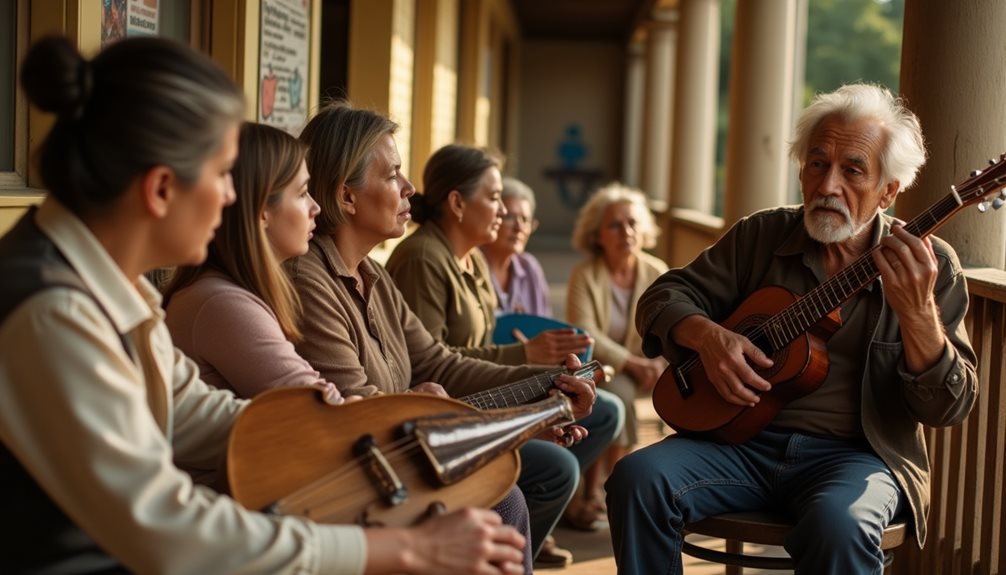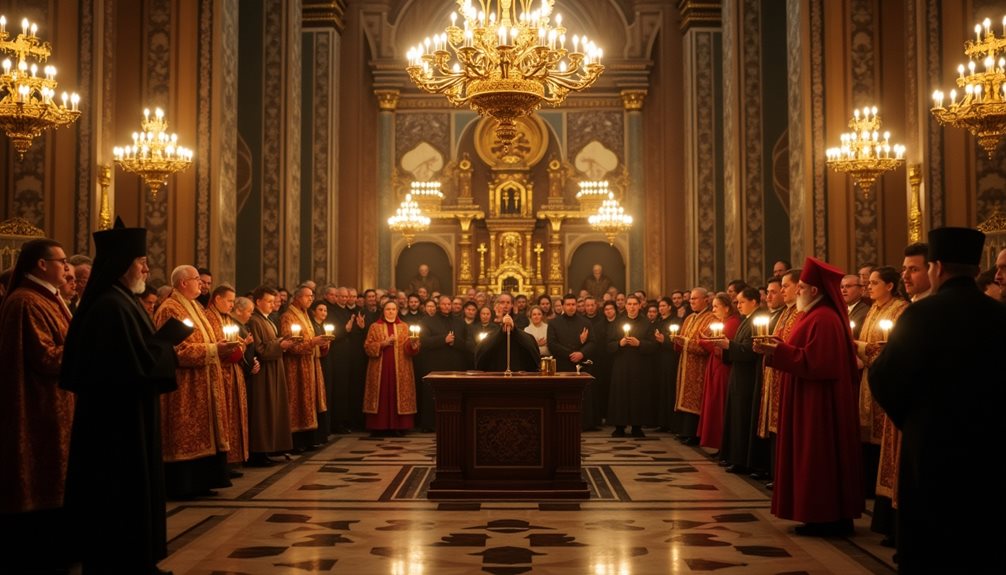Andrei Eshpai’s compositions have long been more than just melodies; they stand as cultural landmarks that reflect and shape the collective spirit of their people. His music captures a wide spectrum of emotions — from intimate personal longing to deep patriotic pride. Each piece offers a window into the social and emotional currents of its era, showing how music can unify diverse experiences and generations. Exploring his works reveals layers of meaning and emotional depth that continue to resonate with listeners today.
About Andrei Eshpai: A Cultural Bridge
Andrei Yakovlevich Eshpai (1925–2015) was a renowned Russian composer of Mari ethnicity, deeply rooted in his Finno-Ugric heritage. Born in the Mari El Republic, Eshpai carried forward the musical traditions of his people, blending classical Russian music with rich Mari folk motifs.
Unlike Eduard Eshpai (1894–1964), who was Andrei’s father and an ethnographer and folklorist, Andrei Eshpai developed his own distinct voice as a composer. His work bridges academic folklore research and contemporary classical music, bringing regional cultural expressions to wider audiences in Russia and beyond. His compositions carry authenticity and emotional depth, resonating deeply with listeners across generations.
Exploring Eshpai’s Legacy in Museums and Cultural Centers
For those interested in exploring Andrei Eshpai’s life and work more deeply, several museums and cultural institutions offer valuable insights. The Mari El National Museum in Yoshkar-Ola celebrates Mari culture and often features exhibitions related to both Andrei and Eduard Eshpai, providing context on the folklore that inspired much of their music. The Russian State Museum of Ethnography in Saint Petersburg presents ethnographic collections that illuminate the diverse traditions Eshpai drew from as both a composer and folklorist. In Moscow, the State Central Museum of Contemporary History offers broader historical perspectives on Soviet-era cultural figures like Eshpai. Additionally, various local cultural centers in the Mari El Republic host exhibitions, concerts, and lectures dedicated to preserving and promoting his musical heritage. These venues enrich our understanding of how Eshpai’s work bridges artistic expression with cultural identity.
The Enduring Romance of “You Are the Only One in My Destiny”

Composed in 1957 for the film A Tale of First Love, “Ty odna v moyey sudby” (You Are the Only One in My Destiny) has far outgrown its cinematic roots to become a timeless symbol of youthful romance.
This song masterfully captures the intensity and innocence of first love — a universal experience that transcends time and place. Its tender melody and heartfelt lyrics convey the emotional awakening that comes with young love, mixing passion with delicate vulnerability. The song’s appeal lies in its ability to articulate feelings that many find difficult to express, making it a shared anthem for generations.
Beyond its romantic theme, the song subtly reflects a collective desire for freedom — not just political, but personal freedom to express deep, sincere emotions openly during formative years. This heartfelt expression connects deeply with listeners, making it a lasting emblem of emotional sincere connection.
Celebrating Heritage Through “A Song About the Motherland”
Eshpai’s 1957 composition “Pesnya o Rodine” (A Song About the Motherland) stands as a profound tribute to cultural identity and national pride, rooted in the rich folklore of the Mari people — Eshpai’s ethnic heritage.
By weaving traditional melodic motifs and evocative lyrics, this song transforms regional beauty and cultural history into a universal celebration of belonging and unity. It offers listeners a sense of pride grounded in cultural roots, highlighting how heritage shapes one’s connection to homeland.
Importantly, this piece transcends political boundaries, serving as an affirmation of freedom through artistic expression and cultural memory. It reminds us that cultural identity is not only a source of pride but also a unifying force that strengthens national spirit.
The Emotional Depth of “Muscovites” in Wartime
Composed in 1958, “Moskvichi” (Muscovites) reflects Eshpai’s own wartime experiences, lending the song its raw emotional power.
The piece channels collective grief, resilience, and hope shaped by the hardships of war. Rather than abstract ideals, its themes of strength and endurance come from lived reality — the struggle and courage of Muscovites during one of the most difficult periods in their history.
This melody serves as both a moving tribute to those who endured suffering and a historical document capturing the spirit of survival. By expressing loss alongside determination, “Muscovites” becomes an anthem not only of remembrance but also of the enduring human spirit.
Love and Longing in “Two Shores”
“Two Shores,” composed for the 1959 film Thirst, explores love’s complexities through themes of separation, hope, and reunion.
The song’s evocative melody, paired with Grigory Pozhenyan’s poignant lyrics, paints a vivid picture of love divided by physical distance yet united by emotional connection. It captures the tension between longing and anticipation — feelings familiar to anyone who has experienced separation from a loved one.
Its hopeful motif of reunion symbolizes faith in love’s persistence despite challenges. Performed by celebrated Soviet divas, “Two Shores” remains a moving anthem of emotional endurance and unity, resonating deeply with audiences across time.
The Tender Yearning of “And It’s Snowing”
Delicacy and nostalgia fill “And It’s Snowing,” a song born from Eshpai’s composition paired with Yevgeny Yevtushenko’s evocative poetry.
The gentle melody conjures imagery of softly falling snow, evoking the serene beauty and quiet reflection of winter. Its lyrical intimacy celebrates fleeting moments — those precious instants when personal yearning blends with shared memory.
As a New Year’s anthem, it goes beyond festive cheer; it invites listeners into a peaceful space of emotional connection between past and present. Through this song, Eshpai offers an artistic expression of hope and renewal grounded in cultural tradition.
![]()
A Lasting Legacy of Unity and Emotion
Andrei Eshpai’s musical legacy is a testament to the power of art to unite a nation through shared emotions and cultural identity. From youthful love to patriotic pride, from wartime resilience to quiet nostalgia, his compositions capture the heartbeats of generations.
Each piece serves as more than just music; they are stories woven into the collective memory — affirming freedom through artistic expression and celebrating the rich tapestry of Russian heritage. These timeless melodies continue to inspire, comfort, and connect listeners across time and circumstance, confirming music’s unique ability to reflect and shape national spirit.




